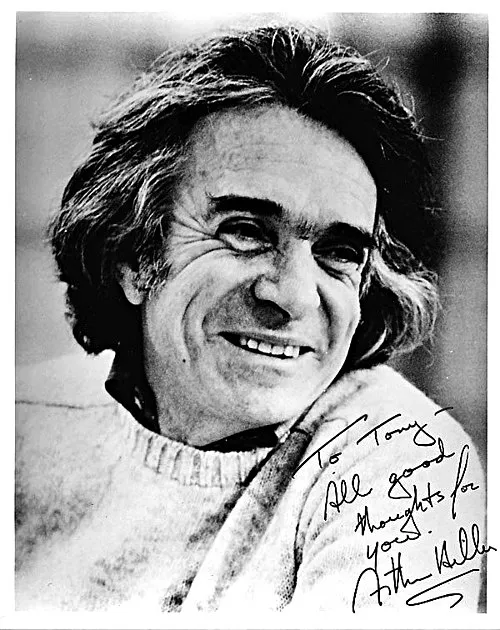In 2019, a devastating bomb explosion at a Kabul wedding resulted in the tragic loss of 63 lives and left 182 others injured. This horrific event underscores the ongoing violence in the region.
On August 17
8
Important Days
71
Important Events
303
Births and Deaths
recorded.
Holidays and Occasions
Events
Births and Deaths

Engineer’s Day in Colombia: Celebrating Innovation and Progress
Every year, Colombia celebrates Engineer's Day on June 16th, honoring the invaluable contributions of engineers to the nation's infrastructure, technology, and overall progress. This day serves as a reminder of the vital role that engineers play in society and the impact their work has on daily life...

Indonesia's Independence Day: A Celebration of Freedom and Unity
Each year on August 17th, Indonesia marks a monumental day in its history: Independence Day. This national holiday commemorates the declaration of independence from Japanese occupation in 1945, a pivotal moment that shaped the nation's identity and spirit...

Saint Beatrice of Silva: Life, Legacy, and Spiritual Influence
Saint Beatrice of Silva, born in 1424 in the royal court of Portugal, was a remarkable figure in the religious landscape of the 15th century. Renowned for her deep faith and mystical experiences, she founded the Order of the Immaculate Conception of the Blessed Virgin Mary...

Saint Clare of Montefalco: A Beacon of Faith and Devotion
Saint Clare of Montefalco, born in 1268 in the small town of Montefalco, Italy, is revered as a symbol of profound faith and dedication to God. Known for her mystical experiences, Claire's life exemplifies the ideals of the Franciscan spirit...

Exploring the Life and Legacy of Saint Hyacinth of Poland
Saint Hyacinth of Poland, also known as Saint Hyacinth of Cracow, is a remarkable figure in the history of the Catholic Church. Born in 1185 in the region that is now Poland, he is celebrated for his missionary work, dedication to education, and his role in the establishment of the Order of Preachers—commonly known as the Dominicans...

Exploring the Life and Legacy of Saint Jeanne Delanoue
Saint Jeanne Delanoue, known for her unwavering dedication to the poor and marginalized, has left an enduring legacy that continues to inspire many across the globe. Born on June 18, 1660, in the town of Angers, France, Jeanne's early life was marked by her deep compassion for those in need...

Saint Mammes of Caesarea: Martyr and Miracle Worker
Saint Mammes of Caesarea, recognized as one of the prominent Christian martyrs, holds a revered place in the Christian tradition. His life and martyrdom reflect the values of faith, resilience, and devotion that continue to inspire believers around the world...

Exploring the Lives and Contributions of Samuel Johnson, Timothy Cutler, and Thomas Bradbury Chandler in the Episcopal Church
The history of the Episcopal Church is rich with influential figures who have shaped its theology, governance, and outreach. Among these, Samuel Johnson, Timothy Cutler, and Thomas Bradbury Chandler stand out as pivotal characters in the church’s development in America...
On August 17, 2017, a devastating attack in Barcelona saw a van plow into pedestrians on La Rambla, resulting in 14 fatalities and over 100 injuries. This tragic incident highlighted security concerns in tourism hotspots and the ongoing fight against terrorism.
In 2015, a devastating bomb explosion occurred near the Erawan Shrine in Bangkok, Thailand, resulting in the tragic deaths of at least 19 individuals and injuring 123 more. This horrific attack highlighted concerns over safety and security in popular tourist destinations.
In 2009, a tragic accident occurred at the Sayano-Shushenskaya Dam in Khakassia, Russia, resulting in the loss of 75 lives and the shutdown of the hydroelectric power station. This incident caused significant power outages throughout the local region, highlighting the dam's critical role in energy production.
In 2008, American swimmer Michael Phelps made history by becoming the first athlete to win eight gold medals in a single Olympic Games, solidifying his status as one of the greatest Olympians of all time.
In 2005, Bangladesh experienced a surge in terrorist activity as over 500 bombs were detonated across 300 locations in 63 of the country’s 64 districts. This alarming wave of violence highlighted the urgent need for enhanced security measures and increased awareness of terrorism in Bangladesh.
In 2005, Israel initiated the first forced evacuation of settlers as part of its disengagement plan from Gaza, marking a significant turning point in the region's history. This event highlights the complexities of Israeli-Palestinian relations and the ongoing challenges in the region.
In 2004, the National Assembly of Serbia unanimously approved new state symbols, designating "Bože pravde" as the national anthem and officially adopting a unified coat of arms for the entire country. This landmark decision reflects Serbia's cultural identity and heritage.
In 1999, the powerful 7.6 Mw İzmit earthquake struck northwestern Turkey, reaching a maximum Mercalli intensity of IX (Violent). This devastating natural disaster resulted in approximately 17,118–17,127 fatalities and left between 43,953 to 50,000 individuals injured, marking a significant event in Turkey's seismic history.
In 1998, the Lewinsky scandal erupted as US President Bill Clinton made a significant revelation during taped testimony, admitting to an "improper physical relationship" with White House intern Monica Lewinsky. On the same day, he addressed the nation, acknowledging that he had "misled people" regarding the affair. This pivotal moment in American politics sparked widespread media coverage and public debate.
In 1991, the Strathfield massacre tragically unfolded in Sydney, New South Wales, Australia. Taxi driver Wade Frankum opened fire, killing seven individuals and injuring six others before taking his own life. This shocking incident remains a significant moment in Australia’s history of gun violence.
In 1988, a tragic plane crash claimed the lives of Pakistan's President Muhammad Zia-ul-Haq and U.S. Ambassador Arnold Raphel. This pivotal moment in history marked a significant turning point for Pakistan and U.S.-Pakistan relations.
In 1985, the Hormel strike of 1985-86 commenced in Austin, Minnesota, marking a significant chapter in labor history. Explore the details of this pivotal event that transformed the dynamics of workers' rights and industry standards.
In 1978, the Double Eagle II made history as the first balloon to successfully cross the Atlantic Ocean. After an incredible journey of 137 hours, it landed in Miserey, France, near Paris, following its departure from Presque Isle, Maine. This remarkable feat showcased the potential of ballooning and set a landmark in aviation history.
In 1977, the Soviet icebreaker Arktika made history as the first surface ship to successfully reach the North Pole, marking a significant milestone in polar exploration.
In 1976, a powerful 7.9 magnitude earthquake struck off the coast of Mindanao, Philippines, resulting in a catastrophic tsunami. This natural disaster claimed the lives of approximately 5,000 to 8,000 individuals and left over 90,000 people homeless. Learn more about this devastating event and its impact on the region.
In 1970, the Soviet Union's Venera program achieved a historic milestone with the launch of Venera 7. This pioneering spacecraft became the first ever to successfully transmit data from the surface of another planet, specifically Venus, revolutionizing our understanding of extraterrestrial environments.
In 1969, Hurricane Camille, a Category 5 storm, struck the U.S. Gulf Coast, resulting in the tragic loss of 256 lives and inflicting $1.42 billion in damages. Explore the devastating impact and historical significance of this catastrophic hurricane on the region.
In 1962, Peter Fechter was tragically shot and left to bleed to death while attempting to cross the newly constructed Berlin Wall. This poignant event highlights the dangers faced by those seeking freedom during a tumultuous era in history.
In 1960, Aeroflot Flight 036 tragically crashed in Soviet Ukraine, resulting in the loss of 34 lives. This incident marks a significant event in aviation history.
In 1959, the powerful 7.2 magnitude Hebgen Lake earthquake near Hebgen Lake in Montana led to the creation of Quake Lake, a natural marvel born from seismic activity. Discover the geological significance of this event and its impact on the region's landscape.
In 1958, Pioneer 0 marked America's inaugural attempt at lunar orbit, launched aboard the first Thor-Able rocket. Although the mission ultimately failed, it stands out as one of the earliest efforts by any nation to reach beyond Earth’s orbit, paving the way for future space exploration endeavors.
In 1955, Hurricane Diane struck near Wilmington, North Carolina, resulting in devastating floods and claiming over 184 lives. This catastrophic event highlights the historical impact of hurricanes on coastal communities.
"Discover the history of Narcotics Anonymous as it all began in 1953 with its inaugural meeting in Southern California. Explore the roots of this transformative support group dedicated to helping individuals overcome addiction."
Discover the shocking events of the 1949 Matsukawa derailment in Fukushima Prefecture, Japan, where unknown saboteurs orchestrated a passenger train crash, resulting in the tragic deaths of three crew members. This incident sparked a political firestorm between the Japanese Communist Party and the government of Occupied Japan, ultimately contributing to the Japanese Red Purge. Learn more about the historical significance and aftermath of this pivotal event.
On December 1, 1949, the 6.7 magnitude Karlıova earthquake struck eastern Turkey, registering a maximum Mercalli intensity of X (Extreme). This devastating seismic event tragically resulted in the loss of 320 to 450 lives.
In 1947, the Radcliffe Line was established as the official border separating the newly formed Dominions of India and Pakistan. Discover the historical significance of this pivotal moment in South Asian history and its impact on both nations.
1945 – In a significant historical event, Puyi, the Kangde Emperor of Manchukuo, officially renounces his imperial title at Talitzou near the Sino-Korean border. This pivotal moment marks the dissolution of Manchukuo as a state and the cession of its territories to the Republic of China. Discover the implications of this transition during the post-war era in our comprehensive analysis.
In 1945, George Orwell's acclaimed novella "Animal Farm" was first published, captivating readers with its allegorical tale that critiques totalitarianism and explores themes of power and corruption. Discover this literary classic today!
In 1945, Sukarno and Mohammad Hatta declared Indonesia's independence, sparking the Indonesian National Revolution against the Dutch Empire. This pivotal event marked a significant turning point in Indonesia's quest for freedom and self-governance.
In 1943, during World War II, the Royal Air Force launched Operation Hydra, marking the inaugural air raid of the strategic bombing campaign known as Operation Crossbow. This mission targeted Germany's V-weapon program, playing a crucial role in undermining enemy capabilities.
1943 – World War II: The historic First Québec Conference kicks off, featuring key leaders Winston Churchill, Franklin D. Roosevelt, and William Lyon Mackenzie King. Explore the pivotal discussions that shaped the course of the war.
**1943 - World War II Milestone: On this day, the U.S. Seventh Army, led by General George S. Patton, arrives in Messina, Italy, just hours ahead of the British 8th Army commanded by Field Marshal Bernard Montgomery. This pivotal moment marks the successful completion of the Allied conquest of Sicily, a significant achievement in the theater of WWII.**
1943 – During World War II, the U.S. Eighth Air Force experiences a significant setback, losing 60 bombers in the crucial Schweinfurt–Regensburg mission. This event highlights the intense air battles and strategic challenges faced during this pivotal period of the war.
In 1942, amidst World War II, U.S. Marines launched a strategic raid on Makin Island, a vital Japanese stronghold in the Pacific. Discover the significance of this historic military operation and its impact on the war.
In 1918, Moisei Uritsky, a prominent Bolshevik revolutionary leader, was assassinated, marking a pivotal moment in the tumultuous history of the Russian Revolution. This event highlights the intense political struggles of the era and Uritsky's significant role in shaping revolutionary movements.
In 1916, during World War I, Romania entered a secret treaty with the Entente Powers, committing to support the Allied forces in the conflict. This pivotal agreement marked Romania's crucial role in shaping the war's outcome.
In 1915, Galveston, Texas experienced a devastating Category 4 hurricane, featuring winds reaching 135 miles per hour (217 km/h). This powerful storm left a significant impact on the region's landscape and history.
In 1915, Leo Frank, a Jewish American, was lynched in Marietta, Georgia, USA, following the commutation of his death sentence by Governor John Slaton. This tragic event highlights a significant moment in American history, shedding light on the issues of anti-Semitism and justice.
In 1914, during World War I, the Battle of Stallupönen saw General Hermann von François's German army achieve a decisive victory over Russian forces led by Paul von Rennenkampf. This pivotal conflict occurred near present-day Nesterov, Russia, marking a significant moment in the early stages of the war.
In 1896, Bridget Driscoll was tragically noted as the first documented pedestrian fatality in the United Kingdom due to a collision with a motor vehicle. This historic incident highlights the growing concerns about road safety as automobiles began to emerge in society.
In 1883, the Dominican Republic celebrated a historic milestone with its first public performance of the Himno Nacional, the country's national anthem. Discover the significance of this moment in Dominican history and its cultural impact.
In 1876, Richard Wagner's iconic opera Götterdämmerung, the final masterpiece in his renowned Ringcycle, premiered at the prestigious Bayreuth Festspielhaus. Experience the culmination of Wagner's operatic vision in this historic performance that shaped classical music history.
In 1866, the Grand Duchy of Baden officially withdrew from the German Confederation, solidifying a peace and alliance treaty with Prussia. This historic decision marked a significant shift in the region's political landscape.
1864 – American Civil War: The Battle of Gainesville saw Confederate forces triumph over Union troops in a pivotal clash near Gainesville, Florida. Discover the historical significance and strategies employed in this key battle of the Civil War.
In 1863, during the American Civil War, Union artillery and naval forces launched a bombardment on Confederate-held Fort Sumter in Charleston, South Carolina. This pivotal event marked a significant moment in the conflict, showcasing the intense military engagement between Union and Confederate forces.
In 1862, during the American Civil War, Major General J.E.B. Stuart received command of the cavalry forces for the Confederate Army of Northern Virginia, marking a significant moment in military history.
In 1862, the Dakota War ignites as Native American warriors launch attacks on white settlements along the Minnesota River in Minnesota, marking a significant chapter in the American Indian Wars. Discover the historical significance and impact of this conflict.
In 1836, the British Parliament enacted a pivotal law that established the official registration of births, marriages, and deaths, revolutionizing record-keeping and vital statistics in the UK. This landmark legislation paved the way for improved social services and accurate demographic data.
In 1827, Dutch King William I and Pope Leo XII formalized their alliance by signing a historic concordat, strengthening the relationship between the Netherlands and the Vatican.
In 1808 during the Finnish War, the pivotal Battle of Alavus takes place, marking a significant event in the conflict's history. Discover the key details and impacts of this critical battle.
In 1807, Robert Fulton's North River Steamboat embarked from New York City to Albany, New York, along the Hudson River, marking the launch of the world's first commercial steamboat service. Discover the history of steam navigation and its impact on transportation!
In 1798, Vietnamese Catholics in Quảng Trị witnessed a miraculous Marian apparition known as Our Lady of La Vang. This significant event holds deep spiritual importance for the Catholic community and continues to inspire devotion among pilgrims.
In 1784, classical composer Luigi Boccherini was granted a significant pay increase of 12,000 reals by the Infante Luis, Count of Chinchón. Discover more about Boccherini's contributions to classical music and his influence on the genre during this pivotal era.
In 1740, Pope Benedict XIV, originally named Prospero Lambertini, became the 247th Pope, succeeding Clement XII. Discover the significant events of his papacy and the impact of his leadership on the Catholic Church.
In 1723, Ioan Giurgiu Patachi was appointed as the Bishop of Făgăraș, receiving a grand installation ceremony at the St. Nicolas Cathedral in Făgăraș. His appointment was officially confirmed by Pope Clement XI, marking a significant milestone in the region's ecclesiastical history.
In 1717, during the Austro-Turkish War of 1716–18, the month-long Siege of Belgrade culminated in a pivotal victory as Prince Eugene of Savoy led Austrian troops to capture the city from the Ottoman Empire. This significant event marked a turning point in the conflict, showcasing military strategy and the resilience of European forces against Ottoman dominance.
In 1668, a catastrophic magnitude 8.0 North Anatolia earthquake struck, leading to a tragic loss of 8,000 lives in northern Anatolia, part of the Ottoman Empire. This powerful seismic event reshaped the region and remains a crucial historical reference in earthquake studies.
In 1597, a historic adventure unfolds as Robert Devereux, the 2nd Earl of Essex, and Sir Walter Raleigh embark on an expedition to the stunning Azores Islands. Discover the significance of this daring voyage and its impact on exploration history.
In 1585, a pioneering group of colonists led by Ralph Lane and commissioned by Sir Walter Raleigh arrived in the New World, establishing the Roanoke Colony on Roanoke Island, located off the coast of what is now North Carolina. This significant event marked the beginning of English colonization in America.
In 1585, during the Eighty Years' War, Spanish forces led by Alexander Farnese, Duke of Parma, successfully captured Antwerp. Following the siege, Farnese ordered the expulsion of Protestant inhabitants, leading to the exodus of over 50,000 of the city's 100,000 residents to the northern provinces. This significant event had a lasting impact on the region's demographics and the ongoing conflict.
In 1560, the Catholic Church was overthrown, leading to the establishment of Protestantism as the national religion in Scotland. This pivotal moment marked a significant shift in the religious landscape of the region, influencing Scotland's culture and history.
1549 – The Battle of Sampford Courtenay marks the defeat of the Prayer Book Rebellion in England. Discover the significance and implications of this pivotal event in English history.
In 1498, Cesare Borgia, the son of Pope Alexander VI, made history by becoming the first individual to resign from the cardinalate. On the same day, he was appointed Duke of Valentinois by King Louis XII of France, marking a significant moment in the political landscape of the Renaissance.
In 1488, Konrad Bitz, the Bishop of Turku, made history by writing the preface to the Missale Aboense, Finland's oldest known book. This significant event highlights the cultural and historical importance of early Finnish literature.
In 1424, during the Hundred Years' War, the Battle of Verneuil saw an English army led by John, Duke of Bedford, achieve a decisive victory against a larger French force commanded by Jean II, Duke of Alençon, John Stewart, and Earl Archibald of Douglas. This pivotal clash played a significant role in the ongoing conflict between England and France.
In 1386, Karl Topia, the esteemed ruler of the Principality of Albania, established a strategic alliance with the Republic of Venice. This partnership entailed Topia's commitment to join the Republic in all its military conflicts, while securing vital coastal protection against the Ottoman Empire. Discover the historical significance of this alliance in shaping regional power dynamics during the late 14th century.
In 1186, the historic Georgenberg Pact was established as Ottokar IV, Duke of Styria, and Leopold V, Duke of Austria, signed a pivotal heritage agreement. This accord designated that Ottokar would transfer his duchy to Leopold and his son Frederick, ensuring that the territories of Austria and Styria would remain united and undivided going forward. Discover the significance of the Georgenberg Pact in shaping regional alliances and governance during medieval Europe.
In 986, during the Byzantine–Bulgarian wars, the pivotal Battle of the Gates of Trajan unfolds as the Bulgarians, led by the formidable Comitopuli Samuel and Aron, triumph over the Byzantine troops. This significant victory sees Byzantine Emperor Basil II narrowly escaping defeat at the hands of the Bulgarian forces, marking a crucial moment in the conflict.
In 682, Pope Leo II ascended to the papacy, marking the beginning of his influential leadership in the Roman Catholic Church.
In 310, Pope Eusebius passed away, likely due to a hunger strike, shortly after being exiled to Sicily by Emperor Maxentius. This pivotal event marked a significant moment in early Church history and highlights the tensions between religious leaders and political authorities during that era.
Births

2003 – The Kid Laroi, Australian rapper and songwriter

2003 – Nastasja Schunk, German tennis player

2000 – Lil Pump, American rapper and songwriter

1996 – Jake Virtanen, Canadian ice hockey player

1995 – Dallin Watene-Zelezniak, New Zealand rugby league player

1995 – Gracie Gold, American figure skater

1994 – Taissa Farmiga, American actress

1994 – Jack Conklin, American football player

1994 – Phoebe Bridgers, American singer/songwriter

1993 – Xie Zhenye, Chinese athlete

1993 – Sarah Sjöström, Swedish swimmer

1993 – Ederson Moraes, Brazilian footballer

1992 – Maru Teferi, Israeli marathon runner

1992 – Chanel Mata'utia, Australian rugby league player

1992 – Alex Elisala, New Zealand-Australian rugby player (d. 2013)

1992 – Saraya Bevis, English wrestler

1991 – Austin Butler, American actor

1990 – Rachel Hurd-Wood, English actress

1989 – Rachel Corsie, Scottish footballer

1989 – Lil B, American rapper
Deaths

2024 – Silvio Santos, Brazilian media mogul and television host (b. 1930)

2024 – Virginia Ogilvy, Countess of Airlie, British countess (b. 1933)

2016 – Arthur Hiller, Canadian actor, director, and producer (b. 1923)

2015 – László Paskai, Hungarian cardinal (b. 1927)

2015 – Gerhard Mayer-Vorfelder, German businessman (b. 1933)

2015 – Yvonne Craig, American ballet dancer and actress (b. 1937)

2014 – Pierre Vassiliu, French singer-songwriter (b. 1937)

2014 – Miodrag Pavlović, Serbian poet and critic (b. 1928)

2014 – Sophie Masloff, American civil servant and politician, 56th Mayor of Pittsburgh (b. 1917)

2014 – Wolfgang Leonhard, German historian and author (b. 1921)

2014 – Børre Knudsen, Norwegian minister and activist (b. 1937)

2013 – Gus Winckel, Dutch lieutenant and pilot (b. 1912)

2013 – David Landes, Jewish-American historian and economist (b. 1924)

2013 – John Hollander, American poet and critic (b. 1929)

2013 – Jack Harshman, American baseball player (b. 1927)

2013 – Odilia Dank, American educator and politician (b. 1938)

2012 – John Lynch-Staunton, Canadian lawyer and politician (b. 1930)

2012 – Patrick Ricard, French businessman (b. 1945)

2012 – Aase Bjerkholt, Norwegian politician, Minister of Children, Equality and Social Inclusion (b. 1915)

2008 – Franco Sensi, Italian businessman and politician (b. 1926)
